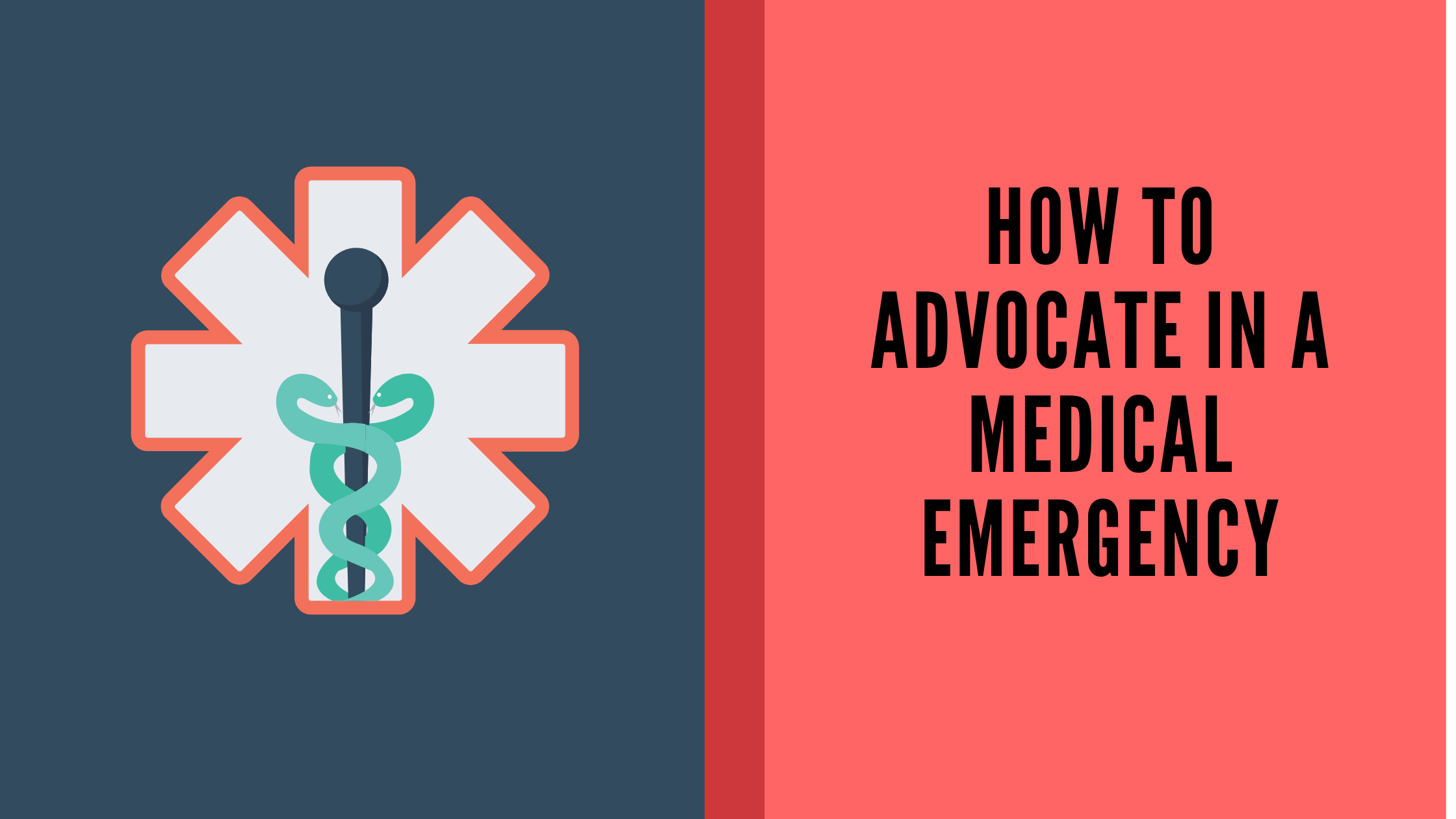 Advocating for yourself or a family member during a medical emergency is crucial but can be tricky. Crisis fries our nervous system and can stunt us from responding in a measured way. However, creating a plan ahead of time can allow us to have a guideline for how to receive the appropriate care and attention while creating space for our emotional response in the meantime.
Advocating for yourself or a family member during a medical emergency is crucial but can be tricky. Crisis fries our nervous system and can stunt us from responding in a measured way. However, creating a plan ahead of time can allow us to have a guideline for how to receive the appropriate care and attention while creating space for our emotional response in the meantime.
Create a medical emergency folder: Collect all relevant medical documents and information pertaining to you or your family member’s condition. Include a list of all current medications, including the dosage, frequency, and prescribing doctor’s information. List your specialty pharmacy as well. Most importantly, include the name of your trusted specialist.
Be in contact with your specialist: At the first available moment notify your specialist and begin their recommended course of action.
Be Assertive: Advocate for your loved one’s needs by being assertive, but respectful, with healthcare providers. Ask questions about the available treatment options, potential risks, and benefits. Express your concerns and ensure that your opinions and observations are heard. EMS workers are trained in their protocols and care but are the person most informed on your medical history and specific needs.
Communicate Clearly: Clearly and concisely describe the situation and symptoms to healthcare providers. Provide specific details about the chronic condition, any recent changes, and the severity of the current emergency. Be prepared to answer questions and provide additional information.
Create a support system triage: One person can not be expected to be able to lead in such a high stress environment for the entire time of a crisis. Planning ahead, sharing the folder (listed as the #1 tip), and creating a sequenced plan of who else could “take over” will allow for you and your family to feel supported and prepared.
Understand Patient Rights: Familiarize yourself with the patient rights and healthcare laws applicable in your region. Knowing your rights can empower you to advocate effectively and ensure appropriate care.
Breathe, breathe, and keep breathing: Crisis is stunting. Taking a moment to pause, even for 30 seconds to center yourself will allow you to think and act effectively.
EMS professionals are highly capable and caring but living with a chronic or rare condition poses the unique challenge of extra preparation and advocacy. If you are interested in creating a medical emergency plan contact ask about it at your next appointment with your specialist.

Recent Comments